
In memory and celebration of Todd Radenbaugh
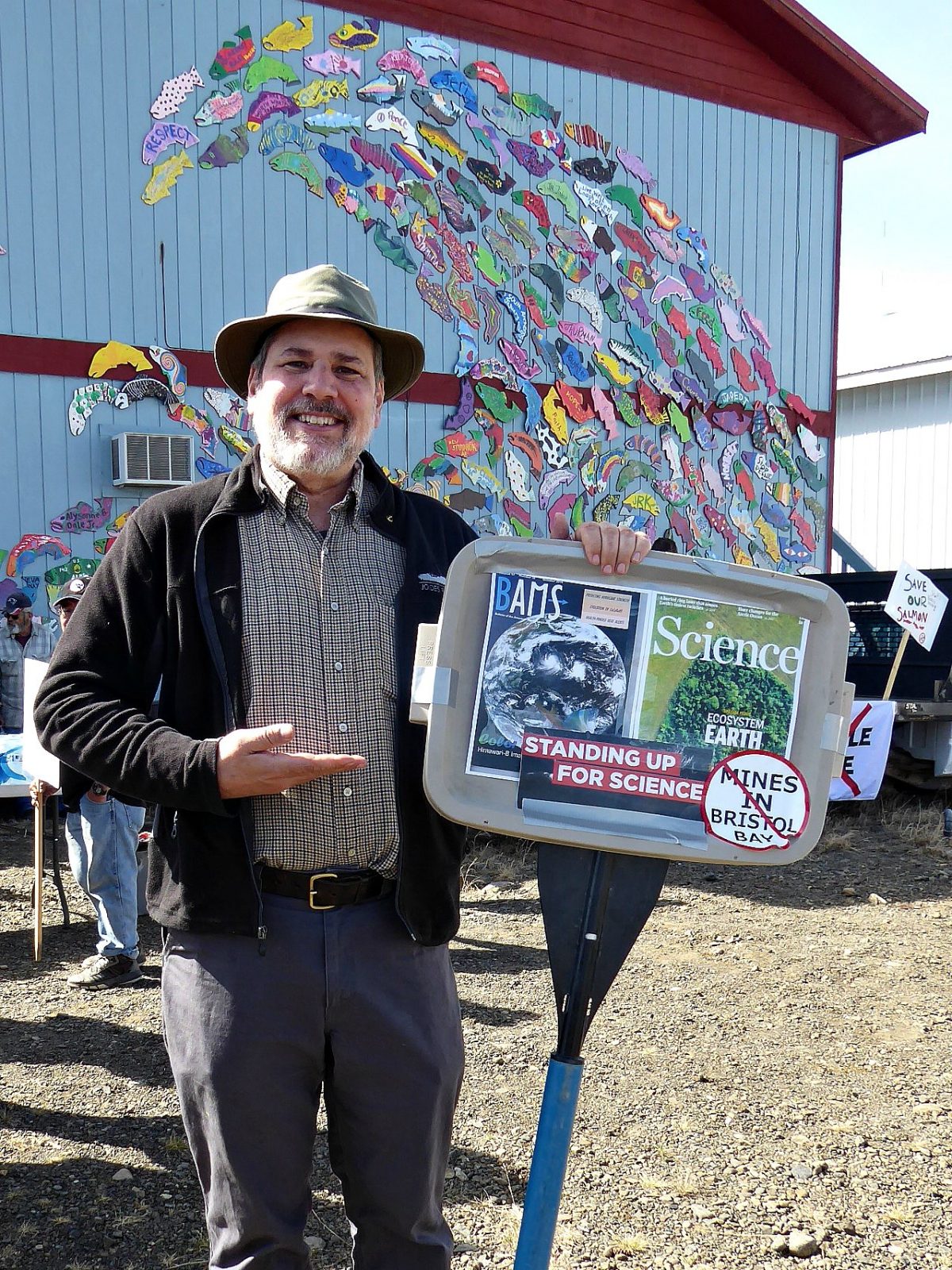
Our friend and longtime Trustees board member Dr. Todd Radenbaugh died at home on October 26.
As his wife Michelle said, “Todd was many things to many people. A professor, a friend, a brother, a son, a husband. But whichever he was to you we can agree his compassion, strength and kindness shined through.”
For us, he was a teacher, a student of the natural world, an advocate for salmon, clean water, and the natural places that give us life, and most of all a friend.
Todd made his home in Dillingham, a place he loved, where his research and work centered on protecting its health and abundance. (Here’s a video that many of the faculty, staff, and members of Todd’s community shared about his work and life.)
Over his life he gave his time to supporting people and communities. He was an Eagle Scout, a Peace Corps volunteer, and a professor at the Bristol Bay campus of the University of Fairbanks. He taught troops in Kosovo, and helped with hurricane relief through the Red Cross.
He lived with cancer for many years, and continued his work with Trustees until September, always demonstrating a deep curiosity about being a kinder, more just human being. Even now, he continues his support of this work; he asked that donations in honor of his legacy go to Trustees.
There are no words to express the depth of our condolences to his family and all those who knew him as a teacher and a friend; nor can we say enough to fully express our gratitude to him for all the knowledge and passion he shared with us over the years.
Instead, we can share the stories about how Todd warmed and informed our lives .
We’ve lost a friend and leader: Dr. Todd Radenbaugh
By Vicki Clark, executive director of Trustees for Alaska
Dr. Todd Radenbaugh was meant to be on the Trustees for Alaska Board of Directors. I met him through Jerry Liboff, the long-time treasurer of the board who was retiring. Jerry was adamant that someone from Bristol Bay succeed him, and he made a great choice.
My first meeting with Todd was at Snow City Café, of course, and Todd’s wife Michele Masley joined us. It was the most animated meeting I ever had with a prospective board member. Todd was insatiably curious and asked question after question to gain deeper knowledge about how Trustees’ work as a law firm fit into the broader fight to protect Alaska and the planet.
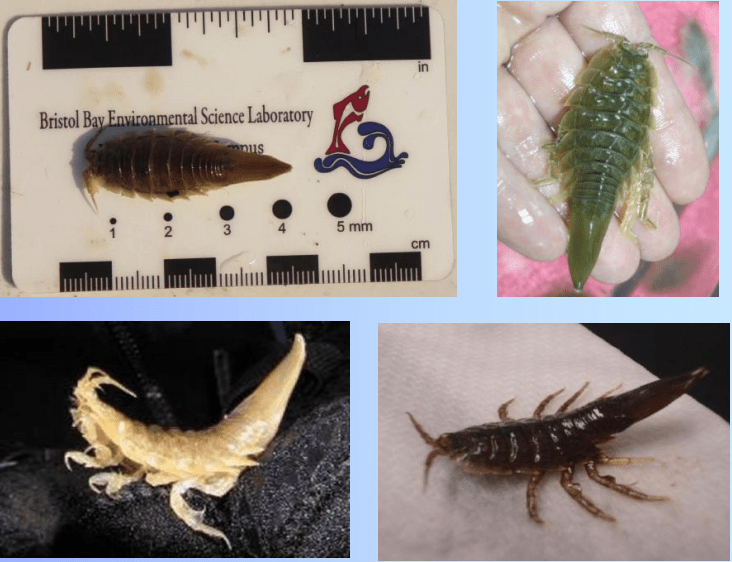
Since I got my undergraduate degree in marine biology, we also geeked out a bit about science. And with the proposed Pebble mine being the biggest issue facing Bristol Bay, we talked about the impacts to salmon. That’s when I understood the true breadth of Todd’s knowledge and passion. He was a tireless advocate of our natural world and how it connected everything—and in Todd’s view, isopods are at the center of it all.
Todd was a shoe-in for becoming a Trustees board member and joined in 2016. As he seemed to be in all aspects of life, Todd jumped in with both feet. At one of Todd’s early board meetings, we had a fundraising consultant provide a “training.” With Jerry leaving and Todd coming on, the two of them decided to have a fundraiser in Dillingham. They would do all the work and I just had to show up and talk about Trustees.
What an event! Michele and her friends made an amazing spread of Spanish tapas and there was Spanish wine. A local group of women had been to Spain and hiked El Camino de Santiago, which was the inspiration for the theme. A fabulous group showed up and we had a great conversation—and Todd and Jerry nearly met their ambitious fundraising goal. It was an inspiration and all board members should take note about how it’s done.
One of the things I admire most about Todd is his love of teaching. His environmental science program at the UAF Bristol Bay Campus touched many young people, teaching them about why this planet is our home and how it sustains us, which so important for our future.
Todd was also tenacious about spreading information, serving for years to organize panels for the Alaska Forum on the Environment. He asked Trustees staff to give a primer on environmental law and was thrilled with the turnout. Todd also started the Western Alaska Interdisciplinary Science Conference, which continues to be a great success. He sat on the Board of the Nushagak Cooperative electrical utility, helping to study new forms of energy that might work for Bristol Bay. Todd’s energy and drive are what made him so effective and engaging.
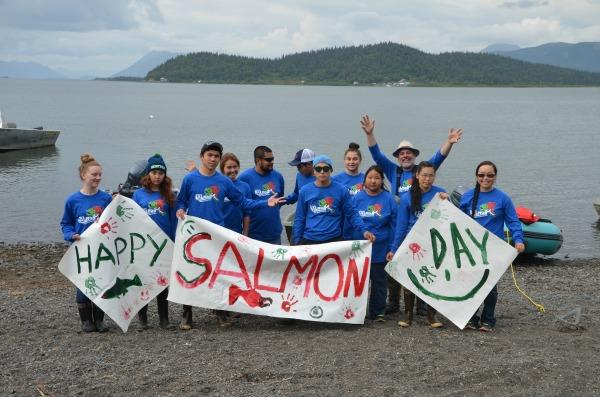
It is so hard to lose a friend. If there’s one thing I’ve learned, it’s that it is my responsibility to carry forward a little bit of what I have learned from those who taught me. From Todd, I and Trustees will carry forward educating about and protecting the connections that sustain our world—and we won’t forget the isopods.
Todd’s world shone like a warm fire
By Chase Hensel, board chair of Trustees for Alaska
It was always Todd’s thoughtfulness and kindness that I was aware of first. And then in the middle of a discussion or conversation, he would pull out some important fact or insight that things ended up pivoting upon. It was also always great to hear him talk about his students. His passion for teaching and explaining the world shone like a warm fire–you could warm your soul and improve your outlook by just standing near him and listening.
My favorite Todd story
By Jerry Liboff, a friend of Todd’s and the former Trustees board member who brought Todd and Trustees together
All of Todd’s friends here in Dillingham have their favorite Todd stories. Here is one of mine.
One weekend, when Todd’s wife Michele was out of town, I invited him to dinner. I cooked one of my specialty dishes—we call it Russian pie—made with smoked king salmon. I knew Todd loved king salmon, so I was curious to see if he liked my salmon dish.
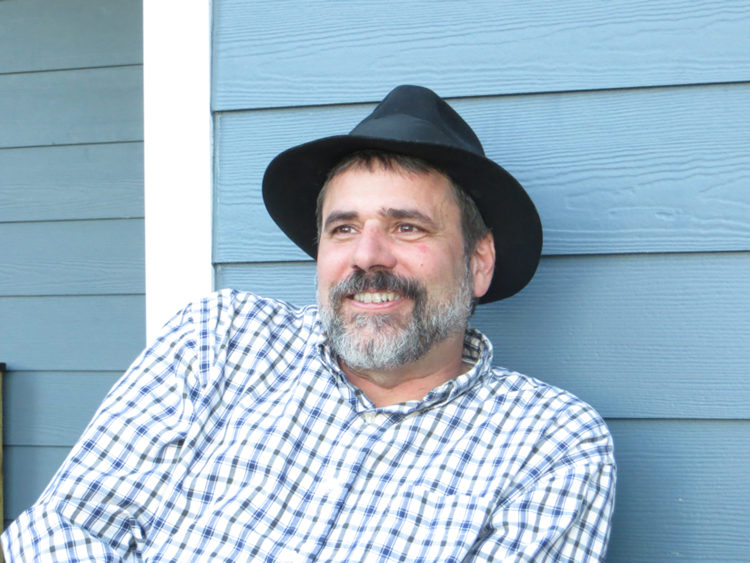
He came over around 7, sat down, and opened a bottle of wine he brought, and we began chatting. Soon, the Russian pie was ready, and I cut a large piece for him. He was in the middle of giving me an animated Todd Lecture on crustaceans and isopods in Nushagak Bay. This went on for a while, and I finished my dinner as Todd continued talking about his research in the mud of the Nushagak.
Finally, after about two hours of lively and engrossing biology lecture, Todd got up, put his coat on, thanking me for a wonderful evening, and started to leave.
“Todd,” I said. “You forgot to eat your dinner.”
He hadn’t taken a bite. He looked down at his extra-large piece, sheepishly took off his coat, sat in his chair, and scarfed down two big pieces of pie. “I forgot I came for dinner,” he said. “It’s pretty good.”
We will miss you Todd.
Bristol Bay was Todd’s destiny
Tim Troll, a friend of Todd’s from Bristol Bay
I have known many people for whom a move to Bristol Bay was simply a diversion—a transition to something else. They left nothing behind, and Bristol Bay was no better for their having been there.
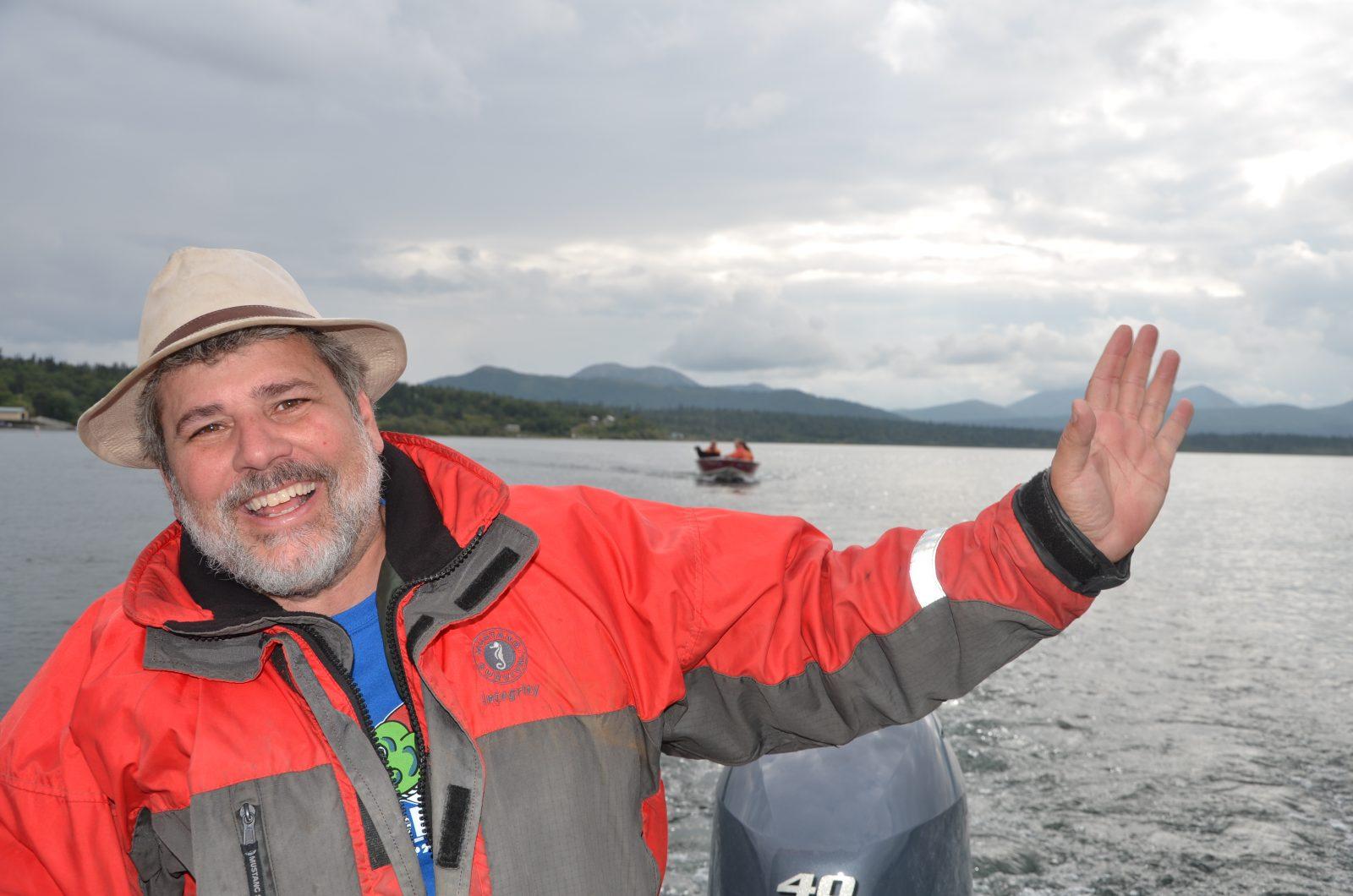
Not so Todd Radenbaugh—Bristol Bay was his destiny. He transformed the science program at the Bristol Bay Campus. He made it his mission to understand the benthic environment of Bristol Bay’s estuaries and pass that understanding along to others. He initiated and was the organizing force behind the Western Alaska Interdisciplinary Science Conference that began in Dillingham and rotates annually among other regional centers in Western Alaska. Todd was an enthusiastic teacher not only at the Bristol Bay Campus, but also at the annual summer Salmon Camp he organized for the youth of the region.
Todd was full of ideas and despite the years he struggled with his illness he mustered the energy to make them a reality. He was a force of nature. My life is much richer for having known him and Bristol Bay is so much richer for his dedication to and genuine affection for the people of the region. His passing leaves a vast void, but the example of his life holds the secret for filling it.
Always a teacher
Paul Liedberg, a friend of Todd’s from Bristol Bay
Much has been said about Todd’s interest in educating others about the natural environment… but not all. In his position as a university professor, one typically assumes that the “need” to educate is limited to, or at least focused on the classroom or lab. But as a close personal friend of Todd, I can attest to the fact that his enthusiasm to share his interest in the natural world broached every age group in every setting.
Whether I was a student in his classroom, with him tending our subsistence salmon nets on adjoining sites on Kanakanak Beach, or collecting oysters from the dock piers at his beloved Cedar Key, Florida property he shared with his family, Todd was the consummate educator, always energized, always sharing his knowledge, his thoughts on natural systems, and his questions.
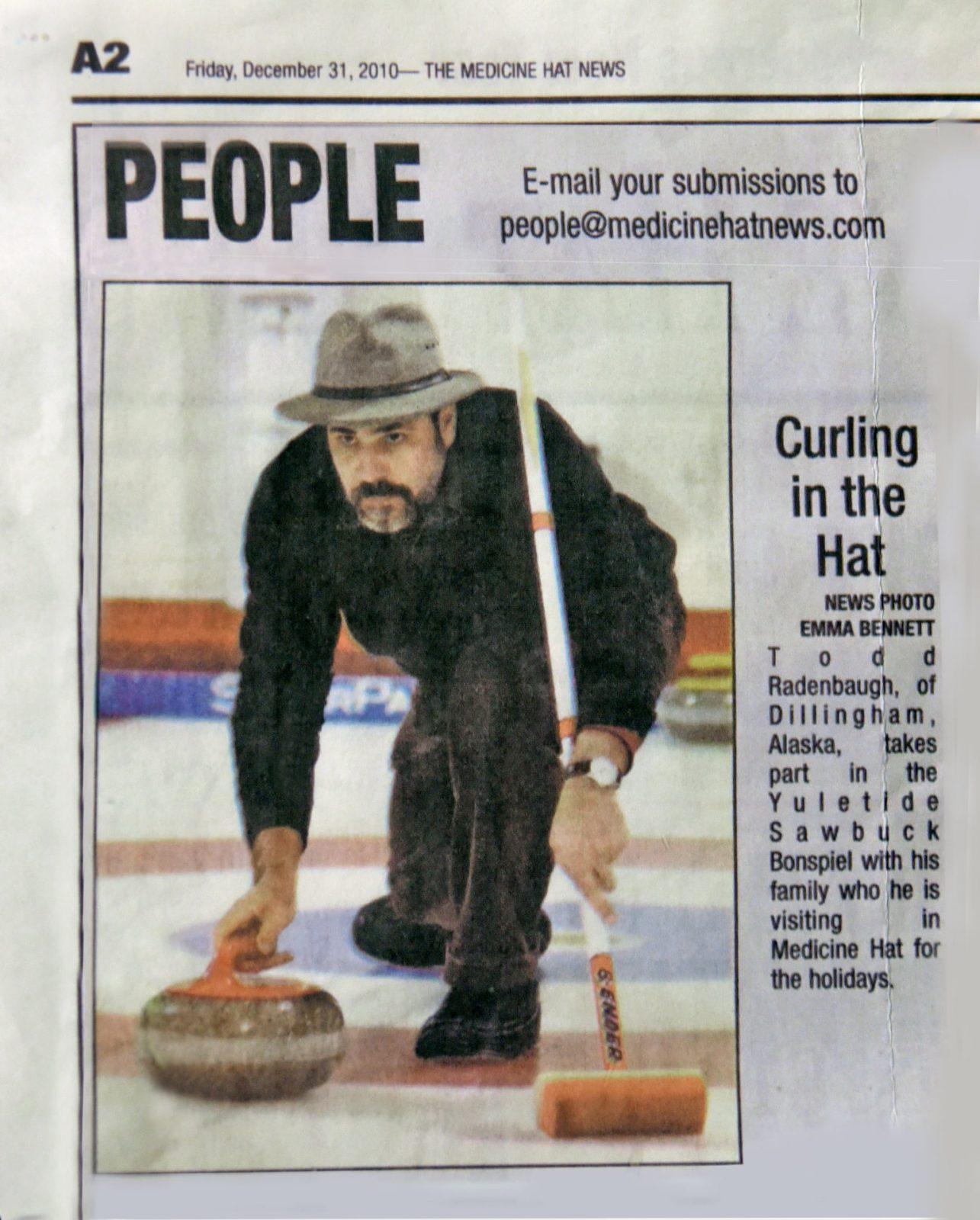
Central to Todd’s work and his life was the desire to help his community and the region make the best decisions about the environment based on science. This was no more evident than with the proposed Pebble mine project. The forums he organized, the classes he taught on the National Environmental Policy Act, the research he did in Nushagak Bay, and more, all formed the basis for helping the region and beyond to take more critical looks and make more powerful statements to support their particular position. I’m confident this is as Todd wanted.
While Todd thought globally, his energies were often expended locally. As one example, a couple of years ago we brainstormed about local sustainability, our solid waste stream, and how we as citizens could help to improve our local landfill. The result was the formation of a Friends of the Landfill group and Todd was one of the first to join. We’d spend evenings together and envision the example our small community could be for others in reducing our far-reaching impacts on the environment. He was my biggest cheerleader in the effort.
We’ve lost a good friend in Todd, an individual who was not constrained by timidity or any checks on his enthusiasm. It’s a guide that all of us can use—a little or a lot—as we honor Todd’s legacy.


